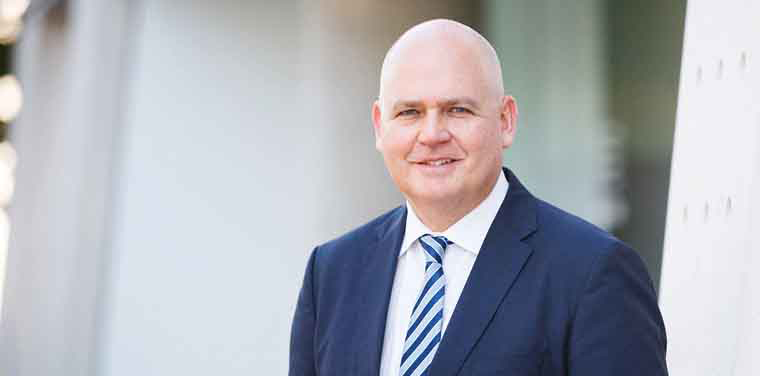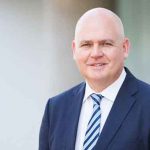The new college chief executive says the RACGP needs to offer more to its members and tells us what he thinks a successful term looks like for the next college president.
Dr Matthew Miles, veterinarian and now CEO of the RACGP, says that while he’s not an expert in general practice, he understands the importance of advocating for a primary-first healthcare system.
Dr Miles joined the RACGP this month and has held a variety of executive leadership positions at the Australian Veterinary Association, the University of NSW’s faculty of medicine, and more recently, MS Research Australia.
Q: The last CEO of the RACGP never appeared in the media, saying it wasn’t the role of the CEO of a medical organisation. But obviously, that isn’t your take. What’s your attitude on the visibility, access and availability of the CEO to both the media and college members?
I think there’s a need for me to be active in the right way and in the right space. When there’s organisational items to do with the college, I think the CEO does need to be quite visible and active with the media and answer questions. But I think it’s also important that we get the mix right between what I do, and what the RACGP president does – and that’s being really critical in talking about GP-related issues with the media. And so, I won’t be impinging on that space, and it’s going to be very clear in the demarcation of our roles. But personally, I like working with the media, and I think you’ll find me to be a lot more accessible, open and interested in getting [the RACGP’s] point across.
Q: What do you see as some of the generic challenges of a CEO, in a not-for-profit organisation such as the RACGP?
I think because it’s a large organisation, and we’re living in uncertain times, that you need to create a very agile, innovative organisation that can pivot quickly. In organisations that have a degree of complexity like the RACGP, it can be very challenging because you’ve got external environments which mean you have to move very quickly, and I think that’s one great challenge for the college.
Q: What do you understand as three of the greatest challenges that GPs will face over the next decade?
There’s a great need for everyone to understand the incredible value of GPs in Australian healthcare: they are the frontline heroes of healthcare, and general practitioners need to be renumerated accordingly for the role they play, and for the time they put in.
Secondly, we need to make sure we continue with the excellent CPD and educational offerings that the college has and ensure that that offering is really suitable for the ways that people like to consume information.
We also have to make sure that there’s no erosion of what a GP does, and if anything, COVID and the recent bushfires should provide a little bit more opportunity for people to fully understand the breadth and scope of work that a GP does and how critically important it is.
Q: Do you have a gauge yet on what effect the RACGP and ACRRM losing their duopoly on CPD might have? Are any projections as to what might happen if companies start setting up CPD homes in competition with the college?
It’s not really clear at the moment and this work is ongoing for us. Of course, we’re cognisant of the need to look at [CPD changes] and I think the most important thing for the college is that there continues to be an enhanced number of offerings to our members. This means not just revolving simply around CPD, but a whole product base that provides the great incentive for membership. In some ways the changes are a positive thing because it’s in nobody’s best interest to have something that revolves around one member product, as opposed to multiple.
Q: If we appoint a new RACGP president every two years, and there are no consecutive terms allowed in the constitution, does that present problems in terms of continuity of leadership, and in particular, the need for continuity in Canberra?
The system is what it is currently, and we have a really terrific board and a strategic plan, in its final stages, which will provide direction going forward. I think that the election of the president is really, really important and I greatly look forward to working with whoever gets that role. But [the president] is a director, among a number of board of directors. I get the sense that the board is very committed to the strategic plan and direction. I suppose on your question about continuity in Canberra, as you probably know, government ministers can change quite a lot as well, so we are used to adapting.
Q: How does the GP that is elected as RACGP president get their head around the game of Canberra politics, and make an impact there, within that two-year time frame?
They can do it in a number of ways and obviously we try to be very clear to the membership on all the things which are happening in government advocacy and send a terrific amount of materials out on a daily basis which give members an insight into the key issues of the day and how we’re dealing with them.
I [believe] all GPs can get involved with lobbying and help to push items that are really important to them. It needs to be a multi-layered approach which in my experience, gets the best results when it comes to government.
Q: Given all that we’ve discussed, what do you think most qualifies you for taking on these challenges as CEO?
I’ve had some time in the government lobbying space and done that with some degree of success in previous roles. The other thing, which I think is important is just that knowledge and understanding of the role and the challenges associated with being a GP. I only understand that at a basic level, I’ve never been a GP myself, but I think my earlier work history as a vet and a generalist meant that I never knew what was going to come through the door next. I also had the challenges of seeing huge number of patients a day and operating a small business.
And finally, I’ve had experience in very complex organisations like the RACGP before, with state-based faculties, executives, expert committees and special interest groups. If you don’t have that experience, you can get overwhelmed with the complexity – but these are the things that make me feel confident.



